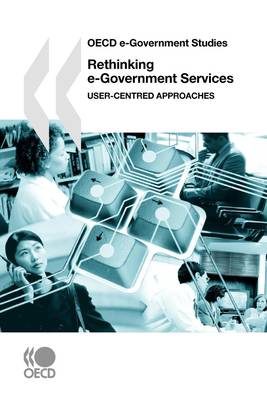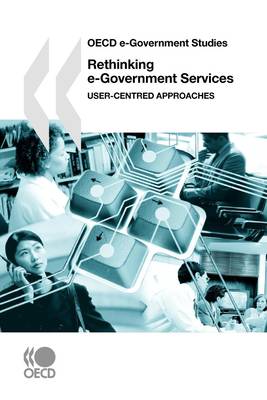
- Afhalen na 1 uur in een winkel met voorraad
- Gratis thuislevering in België vanaf € 30
- Ruim aanbod met 7 miljoen producten
- Afhalen na 1 uur in een winkel met voorraad
- Gratis thuislevering in België vanaf € 30
- Ruim aanbod met 7 miljoen producten
Zoeken
Rethinking E-Government Services
User-Centered Approaches
Organization For Economic Cooperation and Development Oecd
Paperback | Engels
€ 47,95
+ 95 punten
Uitvoering
Omschrijving
Expecting substantial savings and improved public services - a trend further accentuated by the financial and economic crisis beginning in 2008 - OECD countries have invested in the development of e-government services over the past 10-15 years. They have used information and communication technology (ICT) to automate a broad range of internal functions, improve business processes within public organisations and across organisational boundaries, and deliver high-quality services to users - whether citizens, businesses or government employees. E-Government was seen as the ideal solution to the lack of coherency in public service delivery, as well as a way to free up resources through efficiency and effectiveness gains. However, despite the initial exceptional take-up, governments later saw low adoption and low use of e-government services which are still far from satisfactory today. The report gives a broad description of the shift in governments' focus on e-government development - from a government-centric to a user-centric approach. It gives a comprehensive overview of challenges to user take-up of e-government services in OECD countries and of the different types of approaches to improving it. The monitoring and evaluation of user take-up are also discussed, including the existence of formal measurement frameworks. Good practices are presented to illustrate the different concrete approaches used by OECD countries. Also available in the same series: The e-Government Imperative and e-Government for Better Government Country studies on: Belgium; Denmark; Finland; Hungary; Mexico; Netherlands; Norway; Turkey Related reading: Making Life Easy for Citizens and Businesses in Portugal: Administrative Simplification and e-Government; Ireland: Towards an Integrated Public Service
Specificaties
Betrokkenen
- Auteur(s):
- Uitgeverij:
Inhoud
- Aantal bladzijden:
- 221
- Taal:
- Engels
Eigenschappen
- Productcode (EAN):
- 9789264059405
- Verschijningsdatum:
- 11/01/2010
- Uitvoering:
- Paperback
- Formaat:
- Trade paperback (VS)
- Afmetingen:
- 156 mm x 234 mm
- Gewicht:
- 346 g

Alleen bij Standaard Boekhandel
+ 95 punten op je klantenkaart van Standaard Boekhandel
Beoordelingen
We publiceren alleen reviews die voldoen aan de voorwaarden voor reviews. Bekijk onze voorwaarden voor reviews.











